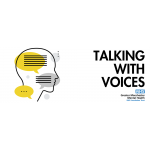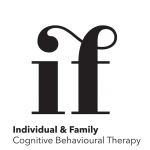MAPS

MAPS
What is this study about?
MAPS Common symptoms of psychosis are unusual beliefs (‘delusions’) and hallucinations (most often, hearing voices). The standard medication (‘antipsychotics’ or ‘APs’) for these problems is often helpful but can have serious side effects. There is also evidence that having talking therapies (such as ‘cognitive behaviour therapy’ (CBT) or ‘family intervention’) can help reduce symptoms and prevent relapse. The NICE guideline for treatment of psychosis and schizophrenia in adolescents CG155 suggests that treatment options should include the possibility of choice between talking therapies, APs or both.
The NICE guideline suggests that the treatment options for young people with a first episode of psychosis should include the possibility of a choice between Cognitive Behavioural Therapy (CBT), antipsychotic medication or both. However, the NICE guideline suggests that more research is needed to see what is the effectiveness of psychological treatment alone, compared with antipsychotic medication alone, and compared with psychological treatment and antipsychotic medication combined. The first stage to better understanding what is most helpful is to conduct a small study to see if young people and their families want to take part in this kind of research and to find out what they think of taking part. This will help us know if we should do a larger study and how best it should be done.
We will provide roughly a third of participants with psychological therapy, a third with antipsychotic medication and a third with a combination of psychological therapy and antipsychotic medication. Everyone will get a least one of the currently recommended treatments. Which treatment they get will be randomly determined so that the treatments can be compared in similar groups of people. The psychological intervention involves up to 30 sessions of Cognitive Behavioural Therapy plus 6 sessions of family intervention (optional). For more information about CBT see HERE
The antipsychotic medication will be prescribed by the participants own psychiatrist. For more information about antipsychotic medication see HERE
An Introduction To Maps
Can I take part?
We are looking for people who:
1. Are aged 14-18 years’ old.
2. Are currently experiencing a first episode of psychosis and seeking help.
3. Have not taken antipsychotic medication in the past 3 months.
4. Have not received psychological intervention in the past 3 months.
If you are living in Greater Manchester, Lancashire, Oxford or Sussex you may be eligible to take part in MAPS. Participants should be receiving care from one of the following NHS Trusts:
1. Greater Manchester Mental Health NHS Foundation Trust
2. Oxford Health NHS Foundation Trust
3. Lancashire Care NHS Foundation Trust
4. Manchester University NHS Foundation Trust
5. North West Boroughs Healthcare NHS Foundation Trust
6. Pennine Care NHS Foundation Trust
7. Royal Bolton Hospital NHS Foundation Trust
8. Sussex Partnership NHS Foundation Trust
What would my involvement be?
1. If you are interested in taking part in the study you can either, ask your doctor or another person involved in your care to make a referral on your behalf or you can self-refer. If you do self-refer we would need to speak to your care team at that point.
2. We will send you some more information and give you more time to think about it. It is your choice to take part or not.
3. If you want to take part, you would be asked to sign a form to say you consent to taking part. For people under the age of 16 we would first have to ask a parent or guardian to sign a consent form to say it is OK for us to contact their child to tell them more about the study.
4. We will then offer you an appointment to check in more detail that you can take part. This will involve answering some questions about your experiences, filling in some questionnaires and a physical health check including weight, height and a blood sample. As a token of appreciation participants will be compensated £10 at this appointment.
5. If you are eligible to take part, you would be randomly allocated to received either:
• Antipsychotic medication: You and your responsible clinician will choose an individual antipsychotic that will best suit you.
• Psychological intervention: Up to 30 sessions of CBT and 6 sessions of family intervention (optional) over 6 months
• Both antipsychotic medication and psychological intervention as described above.
6. In addition, all participants would be asked to meet with a researcher on 3 more occasions at 3-months, 6-months, and 12-months follow-up. As a token of appreciation participants will be compensated £10 at each of these appointments.
7. For the research appointments and the therapy, we always try and see people at a place of their choice.
How do I find out more?
For more information contact Dr Melissa Pyle. She is the trial manager for MAPS and is responsible for trial co-ordination across the three UK sites.
Contact details: melissa.pyle@gmw.nhs.uk


